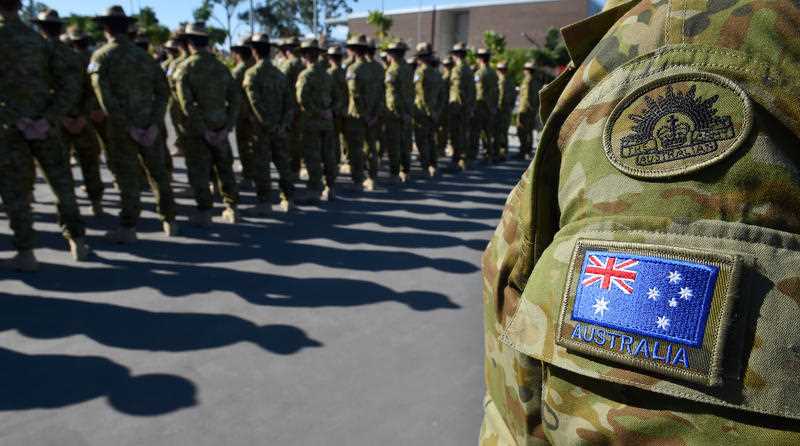More money has been put aside to help deal with a backlog of veteran claims and cash bonuses will be handed out to Australian Defence Force members to continue serving in the force.
The country’s $42.8 billion defence budget for 2023/24 includes $64.1 million in extra support to clear the growing number of claims made by former service members.
Reducing the backlog was one of the central recommendations of the veteran suicide royal commission, with the money also to go towards increasing support for veterans whose claims are being processed.
Defence will get $2 million to continue work on suicide intervention training programs among ex-service members, along with mental health literacy programs.
Amid issues with ADF retention rates, defence members will be able to receive a $50,000 continuation bonus for their service.
More than $395 million has been set aside for the next two years for the pilot program, with the bonuses offered to ADF members nearing the end of their initial period of service.
The budget announced on Tuesday will also include $4.5 billion over the next decade to support the country receiving nuclear-powered submarines as part of the AUKUS security pact.
The AUKUS deal will support 20,000 jobs in the country over the next three decades.
The funding will include $4.2 billion to set up the Australian Submarine Agency, a new body that will sit inside the defence portfolio.
An independent monitor and adviser will also be funded as part of the body, with $15.3 million set aside for the role.
A further $127.3 million will support 4000 federally support places at universities in courses that include skills as part of the nuclear submarine industry, with 800 of them set aside to South Australian universities.
More than $87 million will be spent on developing standards and safeguard arrangements for the nuclear submarines, including waste management and nuclear non-proliferation.
Funding has also been handed out to Australian Naval Infrastructure to start work on a submarine construction yard in South Australia.
An extra $2 million will be spent on a housing feasibility review on reducing the housing burden on defence members.
The government says it will boost defence spending over the next decade, with it set to hit 2.3 per cent of GDP in 2032.
Defence capability will also be bolstered with $3.4 billion over the decade to set up the Advanced Strategic Capabilities Accelerator, which will deliver new technology for the defence industry.
It comes as the government was looking at implementing findings from its defence strategic review.
Defence has already identified $7.8 billion over the next four years for reinvestment into new priority areas after the review
By Andrew Brown in Canberra



